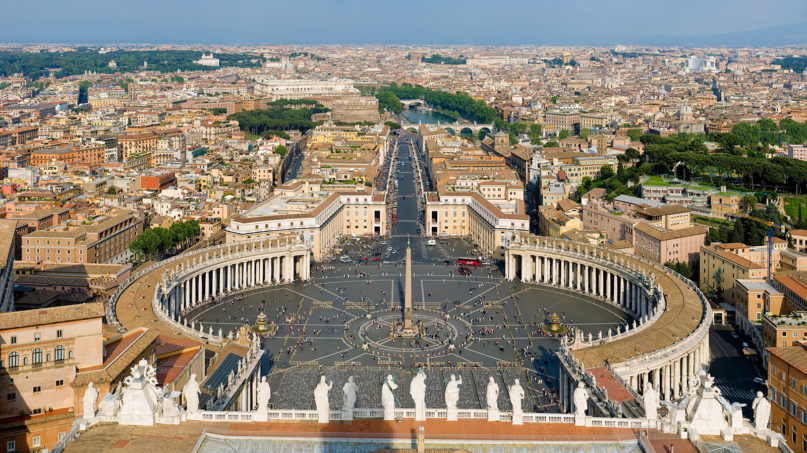VATICAN CITY (RNS) — Pope Francis continued his overhaul of the Vatican’s troubled finances on Saturday (Dec. 5) by approving a new rule aimed at improving oversight and transparency for the Catholic Church’s anti-money laundering agency.
The Vatican’s Financial Information Authority, known as AIF, will now be called the Supervisory and Financial Information Authority, or ASIF, to reflect its regulatory function over other Vatican entities and departments.
In late November, Francis told reporters aboard a papal flight that AIF had failed in “its duty of control.”
The reformed agency assigns new duties to its president and directors and adds a new unit for regulation and legal affairs. Its new functions will ensure “full autonomy and independence,” according to the Vatican’s statement on the changes. Former employees have referred to the body as it was as an “empty shell.”
RELATED: Pope Francis makes the case for his financial reform efforts to European regulators
Smoking out financial scandal has been a motif of Francis’ papacy, with one “opaque” investment deal in prime London real estate provoking a raid of the AIF offices in October 2019. The Vatican suspended five employees after the raid, including the former director of the office, Italian layman Tommaso Di Ruzza.
The president of the anti-money-laundering authority, René Brülhart, resigned following the raids after issuing a strong defense of Di Ruzza and expressing dismay at his treatment by Vatican officials. Shortly after the upheaval, the Egmont Group, a global network of financial intelligence authorities, suspended AIF.
Francis appointed Carmelo Barbagallo president for the newly constituted body on Nov. 27. Barbagallo, who has had a distinguished career in banking oversight, will work with the AIF director named after Di Ruzza’s removal, Giuseppe Schlitzer.
In June, Francis overhauled how the Vatican makes investments in a document that Vatican observers called a “game changer.”
Beyond countering corruption and the financing of terrorism, ASIF will also be responsible for the “prudential supervision” and regulation of any Vatican office that handles investments or financial transactions. It is also tasked with carrying out financial investigations.
RELATED: Disgraced Cardinal Becciu seeks redemption by putting up a fight
The new Vatican statute states that the new agency will “have access to documents and data, even of a confidential nature, and exchange information at domestic and international level.”
Francis’ approach to economic and financial matters is not limited to how money flows at the Vatican. He has also challenged the West’s capitalist mentality, which he believes contributes to rising inequalities and disregard for human dignity.
“An inclusive capitalism that leaves no one behind, that discards none of our brothers or sisters, is a noble aspiration, worthy of your best efforts,” Pope Francis said during an audience in November 2019 with members of the Council for Inclusive Capitalism, a group of wealthy investors, unions and companies committed to an economic model that respects human beings and the environment.
To underline this commitment, the Vatican on Tuesday joined the council.





